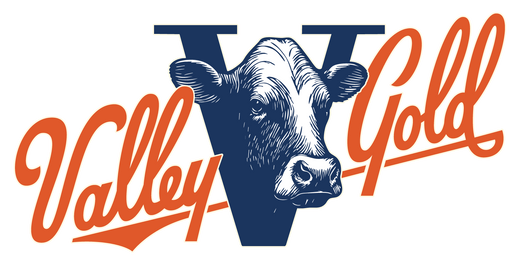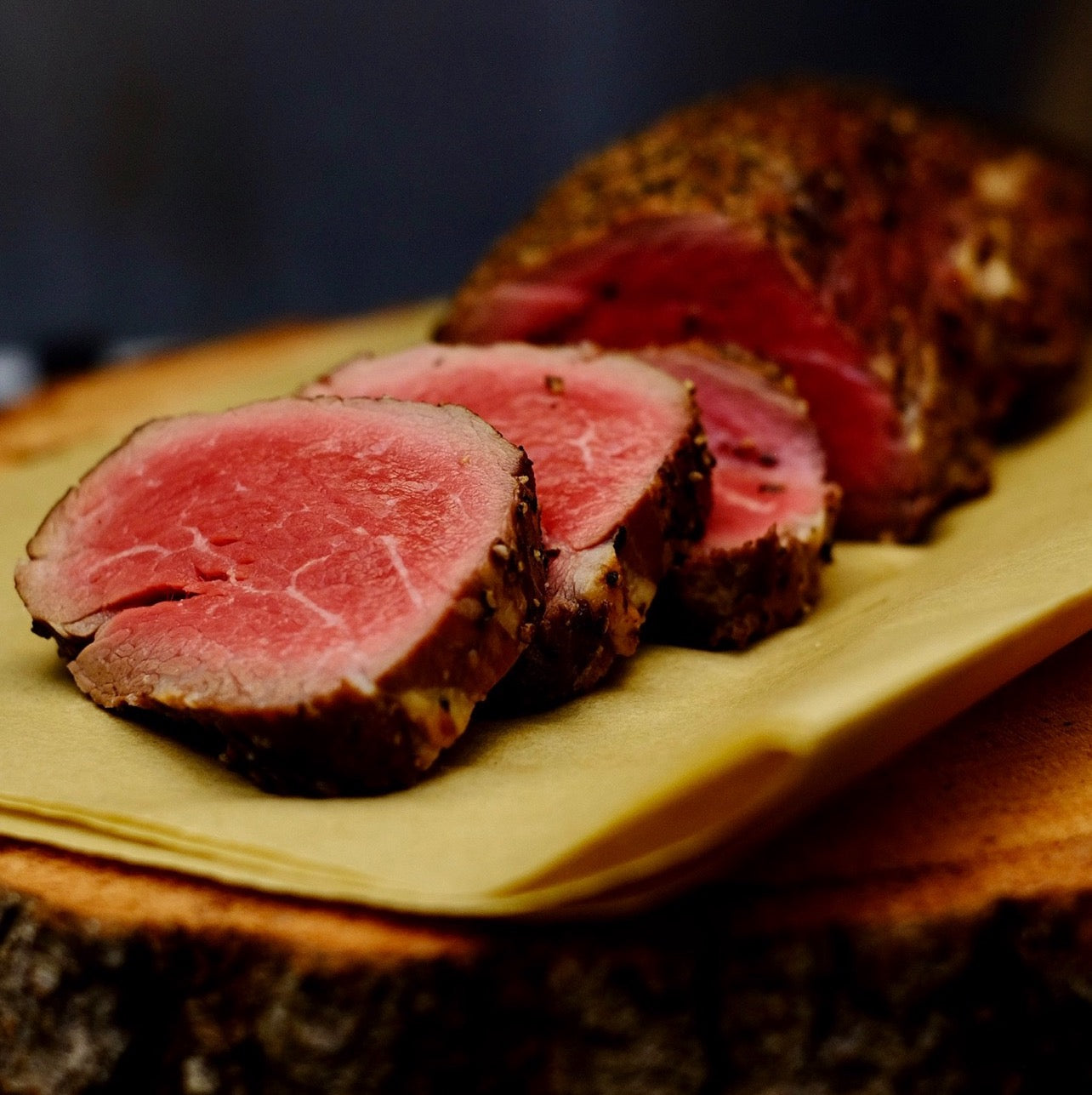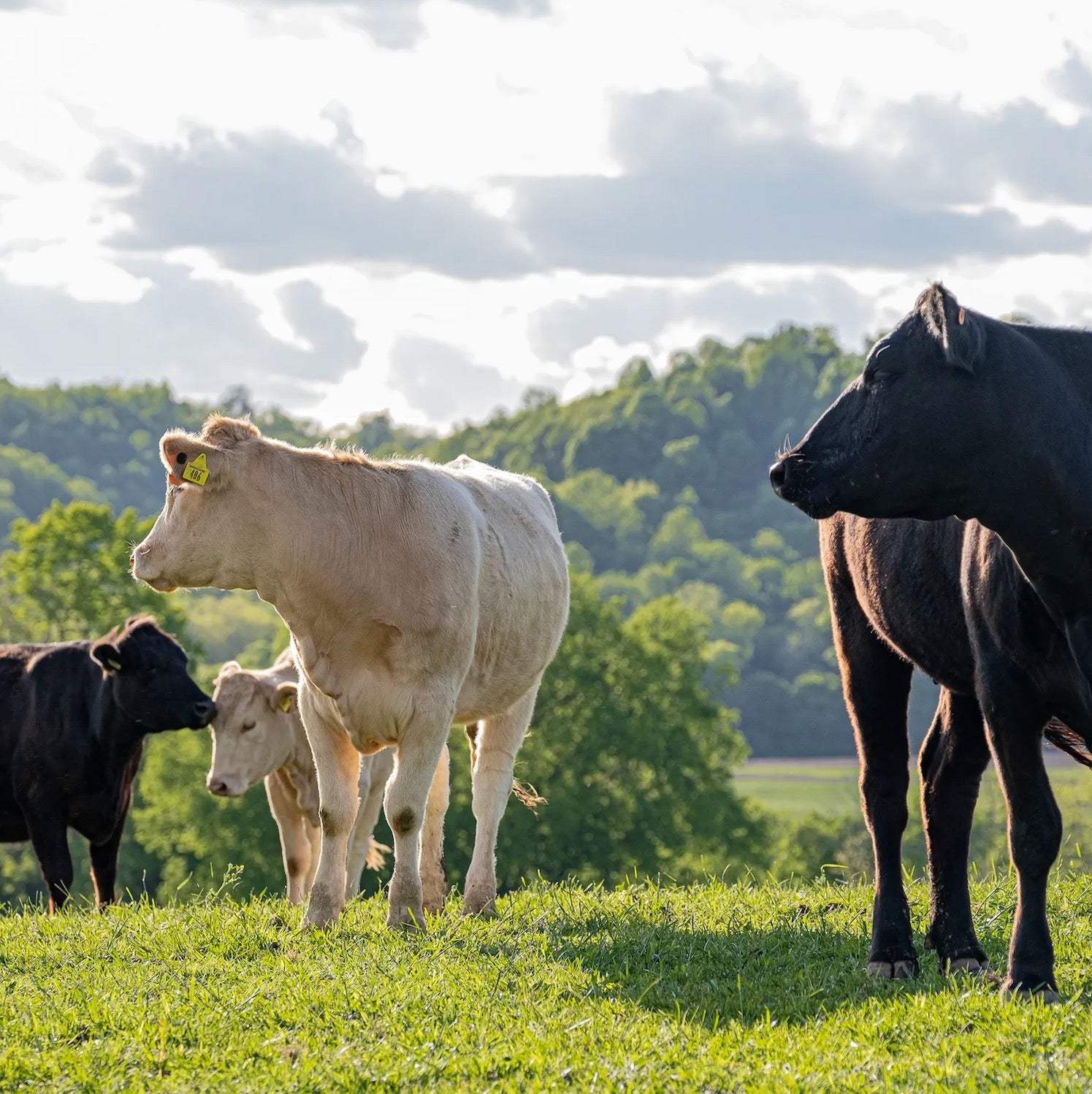The Benefits of Eating Pork and Its Sustainability Across Cultures Through History
Valley Gold Market Blog
In recent years, the internet has been buzzing with debates around pork, with some claiming it’s unhealthy or unfit for human consumption. At Valley Gold, we believe it’s important to cut through the noise and get back to the truth. Pork has been a cornerstone of nourishment for centuries, providing essential nutrients like high-quality protein, B vitamins, iron, and zinc. These are vital for energy, growth, and overall well-being.
For centuries, pork has held a prominent position in diets worldwide, cherished for its nutritional value, flavor, and versatility. As one of the most widely consumed meats, pork has played a significant role in the culinary traditions and sustainability practices of various cultures. Here at Valley Gold, we are proud to offer premium pork that aligns with our commitment to all-natural food production, upholding our family slogan: "Nature gives it, we protect it." In this blog, we’ll discuss the benefits of eating pork and how its consumption has sustained communities across history.
Nutritional Benefits of Pork
Pork is often celebrated for its rich nutrient profile, making it a vital component of a balanced diet. Here are some of its key benefits:
-
High-Quality Protein
Pork is an excellent source of complete protein, providing all nine essential amino acids necessary for growth, repair, and overall health. A 3-ounce serving of lean pork can contain up to 22 grams of protein, making it a great option for active individuals and growing children. -
Rich in Vitamins and Minerals
Pork is particularly abundant in essential vitamins and minerals, including: -
B Vitamins: Pork is an excellent source of B vitamins, especially thiamine (vitamin B1), which supports energy production and nervous system health.
-
Iron: Pork contains heme iron, a highly absorbable form that helps prevent anemia.
-
Zinc: Important for immune function and cell repair, zinc is found in high levels in pork.
-
Phosphorus: Necessary for strong bones and teeth, pork is a great natural source of this mineral.
-
Healthy Fats
Pork cuts such as tenderloin and loin chops are low in fat and high in healthy, unsaturated fats. These fats can help maintain heart health and support brain function when consumed as part of a balanced diet. -
Versatile for Dietary Needs
Pork’s adaptability in cooking means it can suit a variety of diets, including those focused on high-protein, low-carb, or nutrient-dense meals.
Pork in Global Culinary Traditions
Throughout history, pork has been an essential source of sustenance, creativity, and celebration in cultures around the globe. From ancient times to the modern era, pork remains a cornerstone of global cuisines, demonstrating its sustainability and cultural significance.
Asia: The Culinary Backbone
In many Asian countries, pork is a dietary staple. China, the world’s largest consumer of pork, integrates it into countless dishes, from dumplings to sweet and sour pork. Meanwhile, in the Philippines, lechon (roasted pig) is a centerpiece at celebrations, symbolizing prosperity.
Japan’s tonkatsu (breaded and fried pork cutlet) and Vietnam’s bánh mì thịt heo (pork sandwiches) showcase pork’s versatility and ability to elevate everyday meals.
Europe: Time-Honored Tradition
In Europe, pork has long been a cornerstone of agricultural communities. Countries like Germany, Poland, and Italy have developed timeless recipes, such as sausages, smoked hams, and prosciutto. Pork has historically provided a sustainable protein source for rural areas, with every part of the animal being used to minimize waste.
Africa: Integral to Sustainability
In various African nations, pork is a source of nourishment and sustainability. Communities often raise pigs due to their adaptability and ability to thrive on diverse diets. Pork dishes, such as suya (spiced meat skewers) in West Africa, highlight the meat’s versatility.
Americas: A Cultural Staple
In the Americas, pork has played a critical role in cuisines from the Caribbean to the Southern United States. Dishes such as Cuban roast pork, Mexican carnitas, and American pulled pork (and Tennessee whole hog bbq!) celebrate pork’s flavor and adaptability.
The Sustainability of Pork
In addition to its cultural significance and nutritional benefits, pork is a sustainable choice for conscientious consumers. Here’s how pork contributes to a more sustainable food system:
-
Efficient Resource Use
Pigs are highly efficient in converting feed into protein, requiring less land, water, and grain compared to other livestock. Modern pig farming techniques have further reduced their environmental footprint. -
Minimal Waste
Historically, and even today, pork production maximizes the use of the entire animal. From meat to by-products like gelatin and leather, pigs contribute to a zero-waste approach that aligns with sustainable practices. -
Adaptability to Local Environments
Pigs are remarkably adaptable and can thrive in diverse climates and conditions, making them a reliable source of protein in various regions worldwide. -
Supporting Small-Scale Farmers
Pork production often supports small-scale and family farmers who use traditional, environmentally friendly methods. Choosing pork from trusted sources like Valley Gold's partner farmers, ensures that you are contributing to sustainable agriculture practices right here in America. Our mission is to simply keep American farmers farming!
Pork and Historical Sustainability Practices
The consumption of pork has sustained communities throughout history, from ancient civilizations to modern societies. By raising pigs, communities could maintain a reliable food source that complemented their agricultural systems.
-
Ancient Civilizations
Archaeological evidence shows that pigs were domesticated as early as 9,000 years ago in Mesopotamia. Their omnivorous diet made them easy to raise alongside crop farming, creating a balanced and efficient food system. -
Medieval Europe
In medieval Europe, pigs were often allowed to roam forests, foraging for acorns and other natural food sources. This practice, known as pannage, was an early example of sustainable farming. -
Colonial America
During the colonial period in America, pigs were a vital food source for settlers. They were easy to transport, required minimal resources, and provided meat, fat, and leather, making them indispensable to early agricultural communities. -
Modern Innovations
Today, advances in pork farming have made it possible to produce high-quality pork with a lower environmental impact. At Valley Gold Market, we prioritize ethical and sustainable practices that honor these traditions while meeting modern demands.
Why Choose Valley Gold Market for Your Pork?
At Valley Gold Market, we take pride in our heritage and commitment to providing the highest quality, all-natural pork. Our dedication to sustainability and ethical farming ensures that every product aligns with our family’s values. When you choose Valley Gold pork, you are not only enjoying a delicious and nutritious meal but also supporting practices that protect the environment for future generations.
Our farm-to-table approach means you can trust the origins of your food, knowing it has been raised with care and respect.
Closing Thoughts
Pork is more than just a source of sustenance—it is a symbol of cultural heritage, sustainability, and innovation. From its nutritional benefits to its role in history and global traditions, pork continues to be a cornerstone of diets around the world.
At Valley Gold, we honor this legacy by offering pork that reflects our values of quality, sustainability, and respect for nature. Whether you’re preparing a time-honored recipe or trying something new, we’re here to provide the best pork products for your family.
From a spiritual perspective, pork is one of nature’s abundant gifts. It’s a provision that has sustained families and communities for generations—a testament to the wisdom of creation. When raised ethically and consumed responsibly, pork is not only wholesome but a reminder of the bounty we are meant to enjoy. When Peter refused to "kill and eat" in Acts chapter 10 proclaiming that he had never eaten anything that was common or unclean, the voice of God told him "What God has made clean, do not call common."
Let’s not let misinformation overshadow the truth. When sourced from trusted farms like Valley Gold Market, pork represents health, tradition, and the goodness of nature. It’s time to celebrate pork for what it truly is: a delicious, nutrient-rich food meant to nourish our bodies and bring people together at the table.
Shop our selection of premium pork and taste the difference that comes from years of quality meat procurement from our Simpson family here in Franklin, Tennessee!
Ready to elevate your meals with Valley Gold pork? Visit our store today and bring the farmers market to your doorstep!



